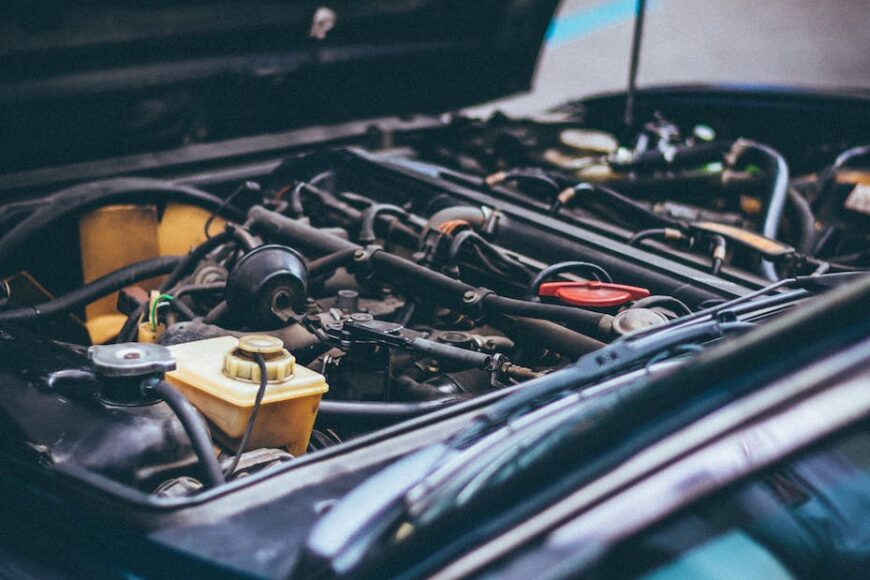- May 30, 2023
- By Tess
- In Diesel, Engine
- Tags Diesel Engine, Diesel Engine Service, Small Diesel Engine, Vehicle Maintenance, Vehicle Tips
- 1566
- 0

Small diesel engines have become increasingly popular due to their fuel efficiency and versatility. However, like any mechanical device, they are prone to certain issues that can hinder their performance. In this blog post, we will shed light on some of the common problems encountered with small diesel engines. By understanding these issues and their solutions, you can ensure that your small diesel engine remains in peak condition.
One of the most common issues with small diesel engines is hard starting or slow cranking. This can be attributed to various factors, including a weak battery, a faulty starter motor, or inadequate fuel delivery. A weak battery or a faulty starter motor may struggle to provide sufficient power to crank the engine, resulting in sluggish starting. On the other hand, fuel delivery issues, such as clogged fuel filters or a malfunctioning fuel pump, can restrict the flow of fuel to the engine, leading to difficulty starting.
To address these issues, it is crucial to regularly check the battery’s condition, ensuring it is properly charged, and the connections are clean and tight. Additionally, inspecting and replacing clogged fuel filters as recommended by the manufacturer, and ensuring the fuel pump is functioning correctly, can significantly improve starting performance.
Overheating is a common concern in small diesel engines and can stem from several sources. Faulty thermostats, worn-out water pumps, clogged radiators, or insufficient coolant levels can all contribute to engine overheating. When the cooling system fails to regulate the engine’s temperature effectively, it can lead to severe damage and even engine failure.
To combat overheating, it is vital to regularly inspect and maintain the cooling system components. This includes checking the coolant level and quality, replacing the thermostat as recommended, flushing the radiator to remove any debris or contaminants, and ensuring the water pump is functioning correctly. Performing these preventive measures can help keep the engine operating within optimal temperature ranges and prevent overheating-related issues.
Fuel contamination is another prevalent issue that affects small diesel engines. Contaminants, such as water, dirt, or sediment, can find their way into the fuel system, leading to fuel injector clogs, reduced engine performance, and even engine damage. Additionally, the use of poor-quality or contaminated fuel can result in fuel system corrosion and accelerated wear on engine components.
To combat fuel contamination, it is crucial to use high-quality diesel fuel that meets the manufacturer’s specifications. Regularly inspecting and replacing fuel filters as recommended can also prevent contaminants from entering the fuel system. Additionally, using fuel additives designed to remove water and impurities can provide an extra layer of protection against fuel contamination.
Experiencing a loss of power is a frustrating issue faced by many owners of small diesel engines. This can occur due to various factors, including clogged fuel injectors, worn-out turbochargers, fuel pump malfunctions, or insufficient air supply. These issues can result in reduced engine output, sluggish acceleration, and overall poor performance.
To address a loss of power, regular maintenance is key. Cleaning or replacing clogged fuel injectors, inspecting and repairing or replacing faulty turbochargers, and ensuring proper air intake and filtration can all contribute to restoring engine power. Routine inspections, adherence to maintenance schedules, and prompt resolution of any issues can help maintain optimal engine performance.
Many small diesel engines are equipped with Diesel Particulate Filters (DPF) and Exhaust Gas Recirculation. (EGR) systems are designed to reduce emissions, but they can also pose their own set of challenges. Diesel Particulate Filters can become clogged over time, leading to decreased engine performance and increased fuel consumption. Similarly, Exhaust Gas Recirculation (EGR) systems, which recirculate a portion of the engine’s exhaust gases back into the intake, can become clogged with carbon deposits, causing reduced power and increased emissions.
Regular maintenance is crucial for DPF and EGR systems. Following the manufacturer’s recommended cleaning intervals and using high-quality diesel fuel can help prevent excessive carbon buildup. Additionally, proper driving habits, such as regular highway driving, can help maintain the efficiency of these emission control systems.
Small diesel engines offer numerous benefits, but they are not without their share of common issues. By familiarizing yourself with these common problems and their solutions, you can take proactive steps to maintain the performance and longevity of your small diesel engine. Regular maintenance, proper fuel management, and prompt resolution of any issues will go a long way in ensuring that your small diesel engine continues to provide reliable and efficient performance.





